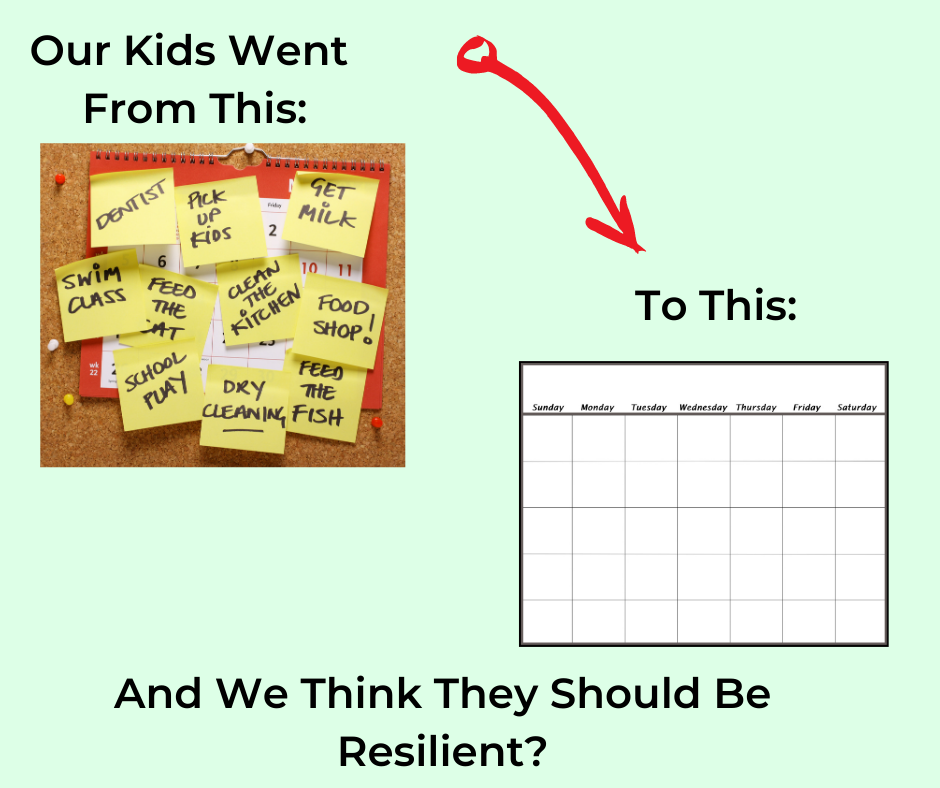
For about 15 years of motherhood, my dry-erase calendar on our refrigerator was my way of keeping track of my kids’ multiple and busy schedules. It has individual week panels that I can shift around and was always full of sports practices and games, doctors’ appointments, birthday parties — all the events that kept our kids happy and healthy, and that made our lives frenetic.
Last spring, for the first time that I could remember, the calendar was blank. And it stayed blank for several months. There were no soccer games or practices, no school events, and no social gatherings. I remember looking at it and thinking that for all the times I had wished for a less busy schedule, I could never have imagined that we would drop off a cliff from carpooling and trying to be three places at once to suddenly having nothing to do and nowhere to be.
Much has been written and said recently about marking a year since all our lives changed. During that year, we have discovered that the resiliency that we naturally attribute to children and teenagers has been sorely tested and may even be a casualty of the crisis.
Given the circumstances, we shouldn’t have high expectations of resiliency from our teenagers. When their calendars have been wiped blank, their school comprising a computer in their bedroom, their parents possibly unemployed, and their SAT and ACT test dates canceled over and over again, is it any wonder that adolescent depression and suicidal ideation has increased?
Yes, teenagers have to learn that even in stressful situations, they have to keep putting one foot in front of the other and try to remain accountable for their schoolwork and household chores. But they also have to learn that they can safely acknowledge and discuss depression and anxiety — and as parents, we have to acknowledge that in this year of blank calendars and suspended social lives, the standards to which we would normally hold our children need not apply.
I can tell you in all honesty from personal experience that I have evolved from prioritizing academics above all else to emphasizing mental and emotional health. Firstly, without mental and emotional well-being, the academics will suffer anyway. And secondly, the consequences of extreme anxiety and depression can long outlive the pandemic, with repercussions that will affect our teens’ lives far more than grades and test scores.
As we emerge from the worst of the crisis, with warmer weather and vaccines enabling our children to resume some level of socializing and activities, let’s remember to cut our kids — and ourselves — more slack than usual. They don’t have to be overly resilient, which would require superhuman strength of many of them. By expecting less, we may end up helping them more.
My refrigerator calendar is slowly filling up again. I’ve never been so happy to use my color-coded dry erase markers.
